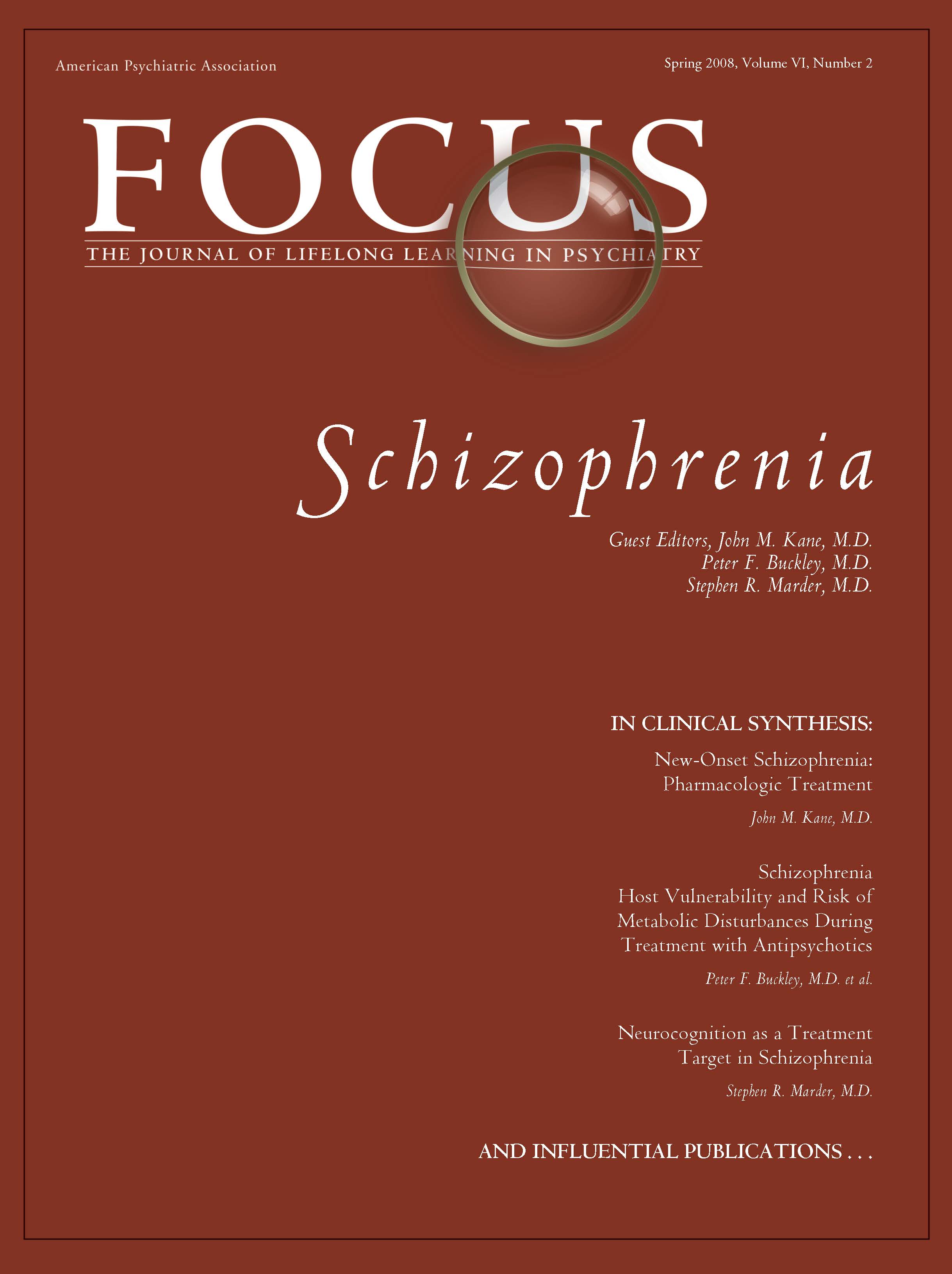From the Guest Editors
Schizophrenia is a prevalent disorder, however until recently there has been little progress in our understanding and formulation of new treatment strategies. Recent advances are creating excitement about new approaches for addressing the treatment needs of this heterogeneous yet very ill patient population.
This issue of Focus contains important information about the onset and first course treatment and prognosis of schizophrenia. The management of patients with new or recent onset schizophrenia is a particular challenge. What occurs during this phase of treatment can have a critical impact on subsequent course and outcome. The planning and implementation of pharmacologic and other treatment strategies must be given careful thought. Patient and family education and sharing in decision making should also be a high priority.
A second more recently recognized clinical issue facing us is the obesity epidemic and particularly for people with schizophrenia, since it is clear that patients with schizophrenia have cardiovascular and related diseases and diabetes. While our practice has now acknowledged this as a pressing concern, the shift in clinical care to consistent monitoring as well as effective management of metabolic disturbances is still “work-in progress.” Nested beside the other current and exemplary articles on the treatment of schizophrenia and “raising the bar” toward recovery, we contribute a synthesis and appraisal of the current “state-of-play” in the understanding, detection, and management of metabolic disturbances during antipsychotic therapy.
A third area of exciting research and renewed emphasis involves neurocognition. There are new findings about cognitions and how we may be able to expand our treatment interventions to include neurocognition as one of the goals. Current pharmacotherapy for schizophrenia is often effective in reducing the most dramatic psychotic symptoms of schizophrenia. However, patients often return to the community with other symptoms—particularly negative symptoms and impairments in cognition—that interfere with their ability to succeed in jobs, school, or in their social relationships. This has led to efforts to develop medications that may address these impairments and improve the ability of patients to benefit from psychosocial treatments and rehabilitation.



